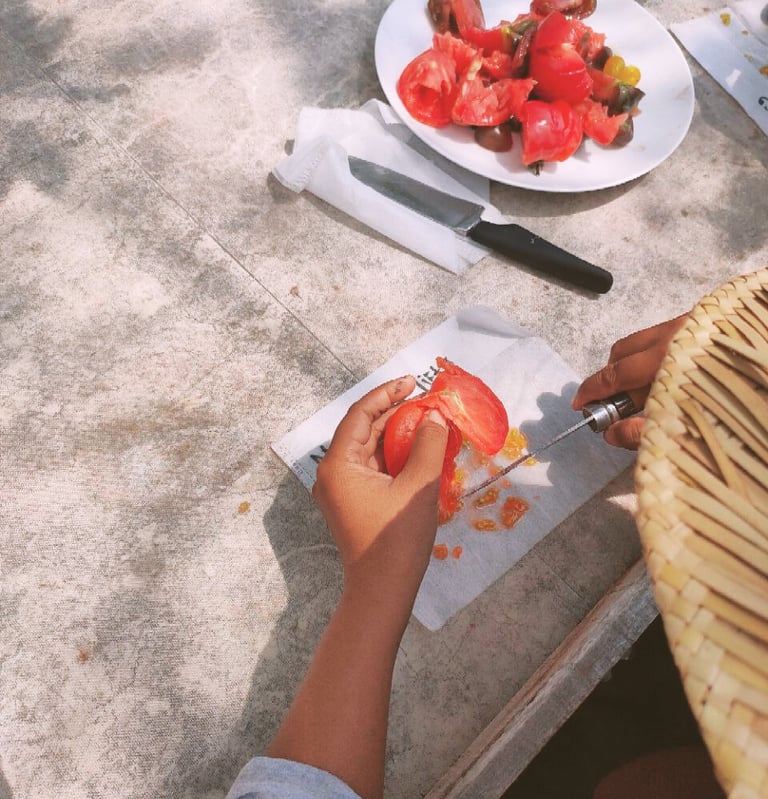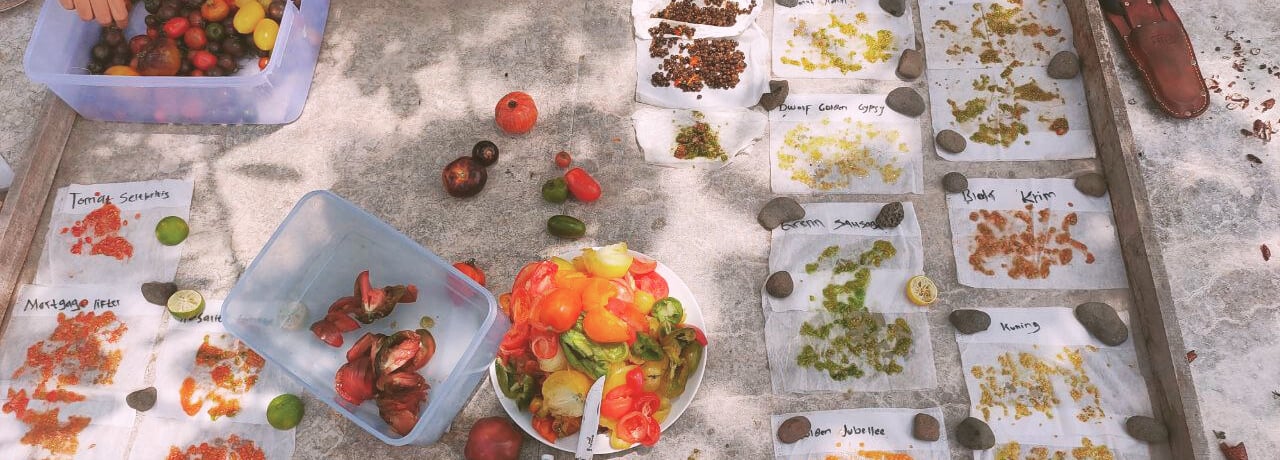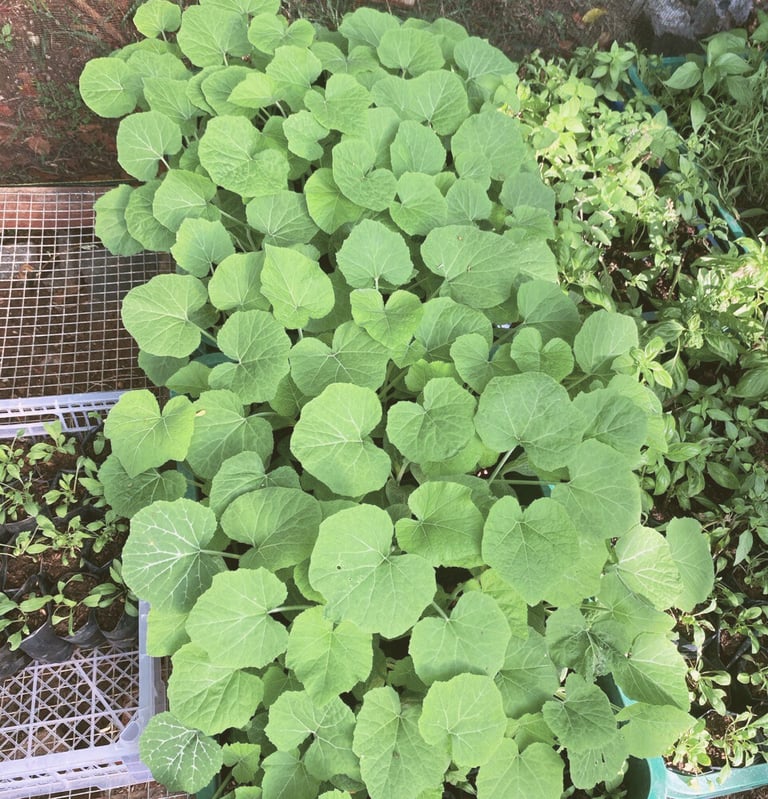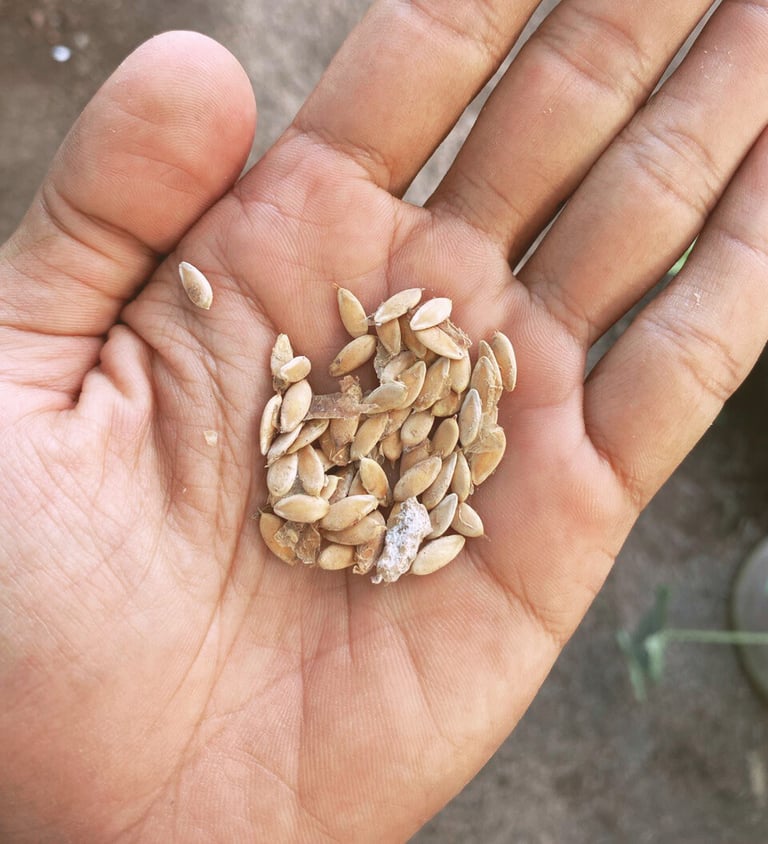Why I Save Seeds:
Growing Sovereignty One Plant at a Time.


Food sovereignty doesn’t begin on a plate.
It begins in the soil, with a seed.
Since 2022, I’ve been committed to seed saving, not just as a gardening technique, but as a quiet act of resistance. It all started when we ran into a serious issue on the farm: we couldn’t find Italian basil seeds anywhere. Everyone, including us, relied on one seed brand. But when supply dropped, prices spiked and so did our awareness. That moment was a wake-up call.


Imagine if that scarcity wasn’t just basil, but rice or corn our staples. A market interruption could become catastrophic, especially for communities already vulnerable to food insecurity. I realized then that relying on imported, branded seeds is not only expensive, but dangerous.
Since that day, I’ve made seed saving a habit, something as regular as watering or weeding. At Saifana Organic Farm, we now save seeds from tomatoes, pumpkins, basil, chilies, greens, and more. But more than just saving them, we’re training them. Each time we grow and save seeds again, they become more resilient, adapted to our specific microclimate in Lombok. They learn, just like we do.
Saving seeds is a practice of care. It connects us with the full cycle of food, from flower to fruit to next generation. It’s a practice I always teach to fellow gardeners, young farmers, and friends who visit the farm.
Because seed saving isn’t just about continuity.
It’s about sovereignty.




It’s about not being held hostage by global seed supply chains, about protecting our biodiversity, and about empowering ourselves to grow food that thrives in our land not food that depends on foreign inputs.
So next time you grow something, don’t just harvest the fruit.
Harvest the future.
Save the seed.
Why I Save Seeds: Growing Sovereignty One Plant at a Time
A reflection on how seed saving became a habit at our farm and why it matters for food security, resilience, and local sovereignty.
2 min read